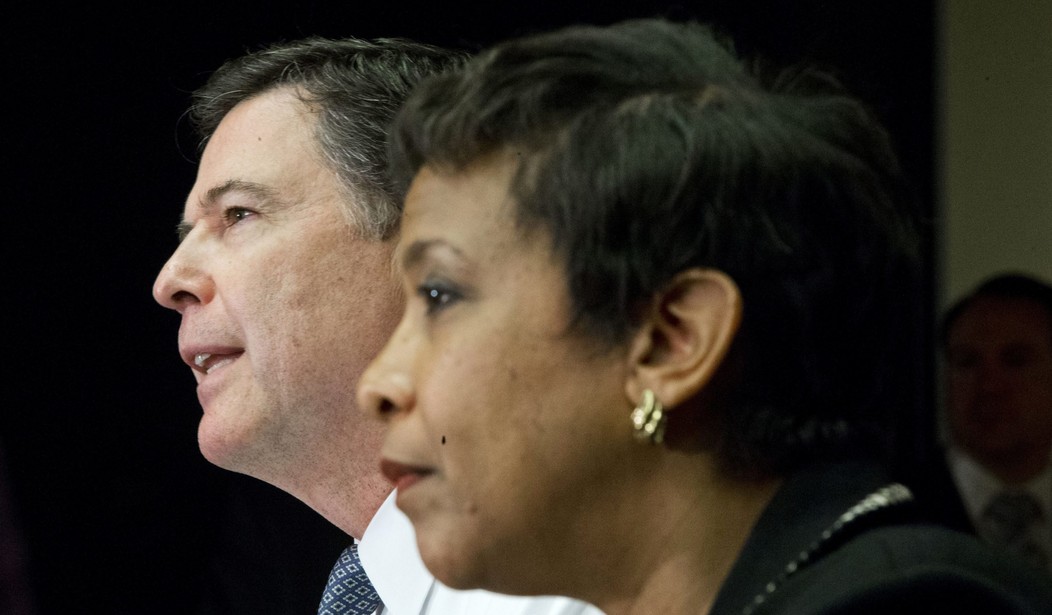Circa News is reporting that former FBI Director James Comey last year briefed members of Congress about “a highly sensitive piece of evidence” that suggested that former Attorney General Loretta Lynch had agreed to “put the kibosh” on any plans to prosecute Hillary Clinton.
According to Circa’s sources who were “directly briefed on the matter,” Comey had a “frosty exchange” with Lynch when he confronted her about the evidence.
In multiple private sessions over the last few months, Comey has told lawmakers about a second, later confrontation with Lynch shortly before the email probe was shut down.
Comey told lawmakers in the close door session that he raised his concern with the attorney general that she had created a conflict of interest by meeting with Clinton’s husband, the former President Bill Clinton, on an airport tarmac while the investigation was ongoing.
During the conversation, Comey told lawmakers he confronted Lynch with a highly sensitive piece of evidence, a communication between two political figures that suggested Lynch had agreed to put the kibosh on any prosecution of Clinton.
Comey said “the attorney general looked at the document then looked up with a steely silence that lasted for some time, then asked him if he had any other business with her and if not that he should leave her office,” said one source who was briefed.
Comey “took that interaction and the fact she had met with Bill Clinton as enough reason to decide he would not allow the Justice Department to decide the fate of the case and instead would go public” with his own assessment that the FBI could not prove Mrs. Clinton intended to violate the law when she transmitted classified information through her private email and therefore should not be criminally charged.
Another source said the “tarmac meeting was the public excuse for not going to Lynch when all along there was other evidence that was more concerning to Comey.” [Emphasis added]
“For months now, lawmakers have been briefed privately by Comey,” Circa News’ Sara Carter said on Hannity Monday night. “Sometimes in classified situations — and then those lawmakers would then brief other lawmakers on what was discussed.”
She further explained, “The reason why he told lawmakers he’d have to talk about it in a classified setting is because of the evidence itself — how that evidence was verified, and how it was obtained. So apparently this is verifiable information — it’s just that the document itself is actually classified.”
However “queasy” all of this made Comey, he would end up taking a dive for Clinton by “rewriting federal law to get her off the hook.”









Join the conversation as a VIP Member